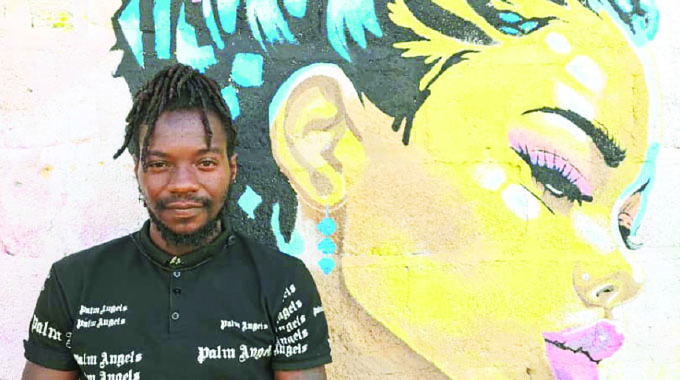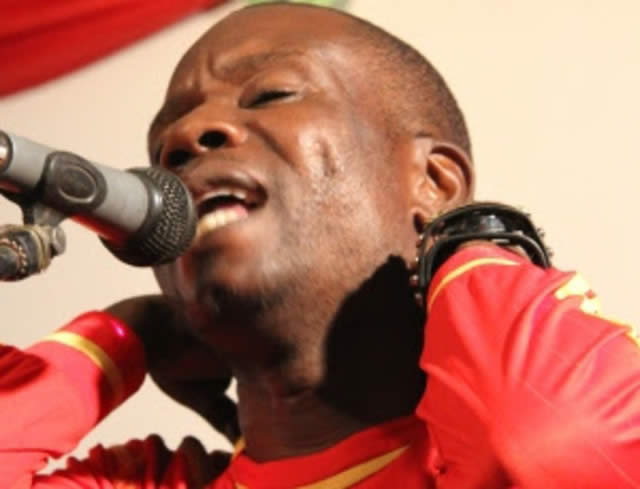Where have all white musicians gone?
Waygood Band, The Heritage Band, Stallion, Klunk, Nick Pickard, Iris Jones, Clem Tholet, Noreen Welsh, The Gutter Band, Steve Roskilly and Martin Norris.
Today, those musicians are now conspicuous by their absence. I last met the Zippers in London several years ago when they were operating the Zipper Mobile recording studio. Their drummer later joined a reggae band called Tribesman.
Zimbabweans aged 45 and above will remember the days of The Blues, The Twist, Soul and Rock ‘n’ Roll. These musical concepts were borrowed from Britain and America.
The radio in Zimbabwe before 1980 was filled with music from names like Chuck Berry, Little Richard, Rolling Stones, Grand Funk Railroad, Deep Purple, Pink Floyd, Wishbone Ash, The Stranglers, The Beatles, Cliff Richard, Otis Redding, Ray Charles, Bob Dylan and Jimi Hendrix. Music festivals which followed the trends of these British and American musicians were organised in Zimbabwe.
Most black groups and individual black musicians began to sound like Otis Redding, Arthur Conley, Wilson Pickett or Sam and Dave to the extent that some musicians began to give themselves soul names such as Soul Evans, Soul Sam, Soul Amos and Hilton Mambo, the Soulman.
Most of the white bands stuck to rock music. Black and white bands would get together in what was termed Rock Band Contest and compete for the title of “The Best Band”. It was amazing to see how thousands of young people of all races – Africans, Coloureds, Europeans and Asians were united under the banner of rock music in a country that did not allow races to mix.
Those Rhodesian scenes cannot be repeated in today’s Zimbabwe because almost all the white bands have disappeared from the scene. The last time I heard of a white musician in Zimbabwe was in 2005. This was David Scobie, a young man with a big voice, but I am told he has also relocated to the “greener” pastures of the United Kingdom.
One of the reasons he gave for leaving Zimbabwe was that local white artistes in Southern Africa were not taken seriously as people who bought white music preferred imported music. He felt that he was being taken as a bit of a novelty act.
David Scobie was born in Dundee, Scotland, in 1964. He was raised on traditional Scottish music which influenced his musical interest.
In 1973, he emigrated with his parents to Rhodesia and, by 1975, was appearing regularly at the Beverley Rocks Motel Folk Club in Salisbury.
During this time he was further influenced by Zimbabwean folk singer, Iris Jones, as well as Neil Diamond. As a result he started to write his own songs and approached Martin Norris at Shed Studios in Salisbury who facilitated a recording deal for him. Martin penned David’s debut single – “Gypsy Girl” – and it went straight to No. 1 in Zimbabwe and No. 4 in South Africa.
In Zimbabwe, he attended Nettleton Primary School in Arcadia between 1973 and 1977. After that he attended Cranborne Boys’ High School from 1978 until 1979 before proceeding to Prince Edward Boys’ High School in 1980.
After school, David went into music full time. He started to work at Shed Studios where he was instrumental in making commercial jingles for various companies. It was during this period that he released his first album, “Cleaning Up”, which was a follow-up to “Gypsy Girl”.
The second album “Reborn, (nothing to do with religion) was released in South Africa. The third and fourth albums, “Photograph”‘ and “Special Edition” were released in Zimbabwe. They didn’t have the same impact as “‘Cleaning Up”.
David Scobie has joined the bandwagon of musicians who have left Zimbabwe for either social, economic or political reasons.
Zimbabwe, which has a vibrant musical history and culture, and its musicians have dauntlessly played their music within the country’s borders and abroad, working hard to preserve and develop the country’s rich musical legacy has in the past 20 years lost a number of prominent musicians to the Diaspora.
These include Thomas Mukanya Mapfumo, Rozalla Miller, Lovemore Majaivana and Ivy Kombo among others.
Although these musicians now live abroad, they have failed to make an impact outside Zimbabwe because of the stiff competition out there.
l Thomas Mapfumo has had four albums made while in Oregon, in the United States, but reports suggest that he has sold more of those records within Zimbabwe than in the country where they were made.
l Rozalla Miller did make a little impact in the UK after she opened up a Michael Jackson show at Wembley Stadium in 1992 and followed this up with the release of two singles “Everybody is Free (To Feel Ggood)” and “Faith ( In The Power of Love”).
In 1996, Rozalla released a remix of “Everybody’s Free”, which was to become her last UK Top 40 hit to date.
For the next 10 years after the Michael Jackson tour, Rozalla would only sporadically release new recordings and her success was limited to various club charts. Her “new” output would primarily consist of remixes and re-recordings of her old hits.
In 2002, she enjoyed a hit single with a remix of “Everybody’s Free” in Germany. She re-emerged in 2003 alongside Plastic Boy. Another track “All Or Nothing” was a sizeable club hit in 2005.
In 2009, after releasing an album called “Brand New Version”, she performed live at the Zimfest, an event which is organised by white ex-Rhodesians every year in South London but she did not have much to offer as she regurgitated the same old hits. She also performed as support act for Billy Ocean on a 41 date tour of Europe.
l Lovemore Majaivana released just one album since he relocated to the States but I understand it had very little impact.
l Ivy Kombo is now based in the UK and has also tried to maintain the momentum of releasing records and performing live shows, but the competition, even in gospel circles, is stiff. Her last album, entitled “Two Minutes”, was released in 2009 and I am told it did not sell many copies.
As for David Scobie, no one seems to know what has happened to him as there is no news of any new releases or live performances even at Zimfest, a music festival which is organised by white Rhodesians in the UK.
Perhaps he has thrown in the towel. I am told that many white musicians who left Zimbabwe and now living in the United Kingdom have now taken other careers which have nothing to do with music.
Feedback: [email protected]





Comments